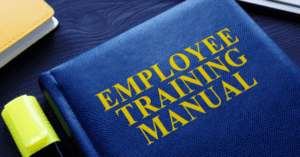How to build strong relationships in the workplace with mutual respect? To build strong workplace relationships with mutual respect, foster open communication, encourage collaboration, recognize individual contributions, and promote inclusivity.
Prioritize trust and transparency, offer support and feedback, and cultivate a culture of empathy and understanding.
Mutual respect is an essential aspect of healthy relationships, whether in the workplace, personal life, or society in general. It is the foundation for building trust, understanding, and cooperation among individuals from different backgrounds, cultures, and beliefs. Mutual respect entails acknowledging and valuing the inherent worth and dignity of every person, regardless of their race, gender, religion, sexual orientation, or any other characteristic.

In today’s diverse and interconnected world, mutual respect is more critical than ever. It helps to foster a positive and inclusive environment where everyone feels valued, heard, and appreciated. Conversely, a lack of mutual respect can lead to misunderstandings, conflicts, and even discrimination, which can have severe consequences for individuals and society as a whole. Therefore, it is essential to understand the fundamentals of mutual respect and how to develop and implement respectful practices in all aspects of life.
Key Takeaways
- Mutual respect is the foundation for building healthy relationships and fostering trust, understanding, and cooperation among individuals from different backgrounds and cultures.
- Mutual respect entails acknowledging and valuing the inherent worth and dignity of every person, regardless of their race, gender, religion, sexual orientation, or any other characteristic.
- Developing and implementing respectful practices is crucial for creating a positive and inclusive environment where everyone feels valued, heard, and appreciated.
Fundamentals of Mutual Respect
Defining Respect and Mutual Respect
Respect is a fundamental value that is essential for building healthy relationships in various settings. It involves treating others with dignity, empathy, and consideration. Respect is not just about being polite or courteous; it also involves valuing and appreciating others’ perspectives, beliefs, and experiences.
Mutual respect is a two-way street that involves both parties treating each other with respect. It is an essential component of healthy relationships, whether it is between friends, family members, coworkers, or romantic partners. Mutual respect involves acknowledging and accepting each other’s differences and working together to find common ground.
Importance of Mutual Respect in Various Settings
Mutual respect is crucial in various settings, including personal relationships, workplace, and society. In personal relationships, mutual respect helps build trust, intimacy, and emotional connection. It also helps resolve conflicts and disagreements in a healthy and constructive manner.
In the workplace, mutual respect is essential for creating a positive and productive work environment. It helps foster teamwork, collaboration, and open communication. It also promotes diversity and inclusion, which can lead to better decision-making and innovation.
In society, mutual respect is crucial for promoting social harmony and reducing conflicts and tensions between different groups. It helps create a sense of belonging and community, where everyone is valued and respected regardless of their background, culture, or beliefs.
To learn more about the fundamentals of mutual respect, check out this article by Psychology Today.
Mutual Respect in the Workplace
Mutual respect in the workplace is essential for creating a positive and productive work environment. It involves treating colleagues and employees with dignity, empathy, and professionalism. Building a culture of mutual respect requires effort from every employee, including management, HR, and staff. In this section, we will explore the key elements of mutual respect in the workplace.
Building a Culture of Mutual Respect
A culture of mutual respect is built on a foundation of trust, transparency, and open communication. It is essential to establish clear expectations and guidelines for behavior in the workplace. This can be achieved through a mission statement or code of conduct that outlines the company’s values and expectations for behavior.
One effective way to build a culture of mutual respect is to encourage and reward positive behavior. This can include recognizing employees who demonstrate respect for their colleagues, customers, and the company’s mission. It is also important to address negative behavior promptly and fairly, using a progressive discipline approach.
Leadership’s Role in Fostering Respect
Leadership plays a critical role in fostering mutual respect in the workplace. Leaders must model the behavior they expect from their employees and hold themselves accountable for their actions. They must also communicate clearly and consistently with their team, including setting expectations for behavior and addressing any issues that arise.
Leaders can also promote mutual respect by involving employees in decision-making processes and providing opportunities for professional development and growth. This can help employees feel valued and respected, leading to increased loyalty and productivity.
HR Practices that Support Mutual Respect
HR practices play a crucial role in supporting mutual respect in the workplace. This includes recruiting and hiring employees who share the company’s values and expectations for behavior. It also involves providing training and development opportunities to help employees understand the importance of mutual respect and how to demonstrate it in the workplace.
HR can also facilitate open communication and conflict resolution processes to help employees resolve issues in a respectful and productive manner. This can include providing a safe and confidential environment for employees to voice their concerns and providing mediation or other resources to help resolve conflicts.
Benefits of Mutual Respect on Productivity and Retention
Mutual respect in the workplace has numerous benefits, including increased productivity and employee retention. When employees feel respected and valued, they are more likely to be engaged and motivated in their work. This can lead to increased productivity and better outcomes for the company.
Mutual respect also promotes a positive work environment, which can lead to increased employee satisfaction and retention. When employees feel respected and valued, they are more likely to stay with the company long-term and contribute to its success.
In conclusion, mutual respect in the workplace is critical for creating a positive and productive work environment. Building a culture of mutual respect requires effort from every employee, including management, HR, and staff. By promoting mutual respect, companies can improve productivity, retention, and overall success. For more information on building a culture of mutual respect, please visit SHRM’s article on “How to Build a Culture of Respect in the Workplace”.
Developing Healthy Relationships
Developing healthy relationships is an important aspect of life. It involves mutual respect, trust, and support between individuals. In this section, we will discuss the importance of respect in personal and professional relationships, the role of boundaries and open communication, as well as conflict resolution and compromise.
Respect in Personal and Professional Relationships
Respect is a crucial element in any healthy relationship. It involves treating others the way you would like to be treated, regardless of their background, beliefs, or opinions. In personal relationships, respect entails valuing your partner’s feelings, opinions, and boundaries. In professional relationships, respect involves treating colleagues and clients with dignity and professionalism.
To develop mutual respect in relationships, it is essential to listen actively, communicate clearly, and acknowledge each other’s strengths and weaknesses. It is also crucial to avoid making assumptions or judgments and to be open-minded and non-judgmental.
The Role of Boundaries and Open Communication
Boundaries are essential in any relationship. They define what is acceptable and what is not, and they help individuals feel safe and respected. Open communication is also vital in relationships as it allows individuals to express their needs, feelings, and concerns in a non-judgmental and respectful manner.
To develop healthy boundaries and open communication in relationships, it is essential to establish clear expectations and to communicate them openly and honestly. It is also crucial to respect each other’s boundaries and to be willing to compromise when necessary.
Conflict Resolution and Compromise
Disagreements and conflicts are inevitable in any relationship. However, how individuals handle them can make a significant difference in the outcome. Conflict resolution involves finding a solution that is acceptable to both parties, while compromise involves giving up something to reach a mutually beneficial outcome.
To develop effective conflict resolution and compromise skills, it is essential to listen actively, communicate clearly, and be willing to see the other person’s point of view. It is also crucial to be respectful and non-judgmental, and to focus on finding a solution that works for both parties.
In conclusion, developing healthy relationships involves mutual respect, trust, and support. It requires open communication, clear boundaries, effective conflict resolution, and compromise. By following these guidelines, individuals can develop strong and positive relationships in both their personal and professional lives.
For more information on developing healthy relationships, please visit https://www.psychologytoday.com/us/basics/relationships.
Communication and Feedback
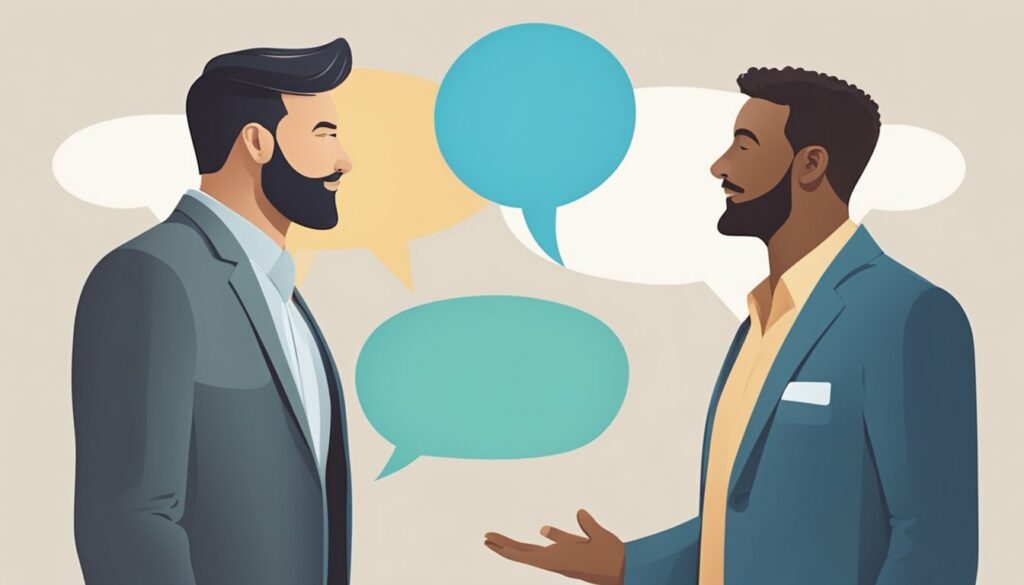
Effective communication is a crucial component of mutual respect. It involves the exchange of ideas, thoughts, and feelings between individuals in a clear and concise manner. When communication is done effectively, it can lead to better understanding, trust, and stronger relationships.
Effective Communication Skills for Mutual Respect
To build mutual respect, individuals need to develop effective communication skills. These skills include being clear and concise, active listening, and being open to feedback. Clear and concise communication ensures that the message is understood without any ambiguity. Active listening involves paying attention to the speaker, asking questions, and paraphrasing to ensure that the message is understood correctly. Being open to feedback involves being willing to listen to feedback without becoming defensive, and using the feedback to improve communication.
Active Listening and Feedback Loops
Active listening is a critical component of effective communication. It involves paying attention to the speaker, asking questions, and reflecting on the message. Active listening can help individuals understand the speaker’s perspective and build empathy. Feedback loops are another important aspect of effective communication. Feedback loops involve providing feedback to the speaker on how their message was received and understood. This can help to clarify any misunderstandings and ensure that the message is delivered effectively.
Addressing and Overcoming Biases
Biases can impact communication and hinder mutual respect. It is essential to be aware of biases and work to overcome them. Overcoming biases involves being open to different perspectives, actively listening, and reflecting on one’s own biases. By addressing and overcoming biases, individuals can build stronger relationships based on mutual respect.
To learn more about effective communication and feedback, visit MindTools, a resource with high authority on the topic.
Respect and Diversity
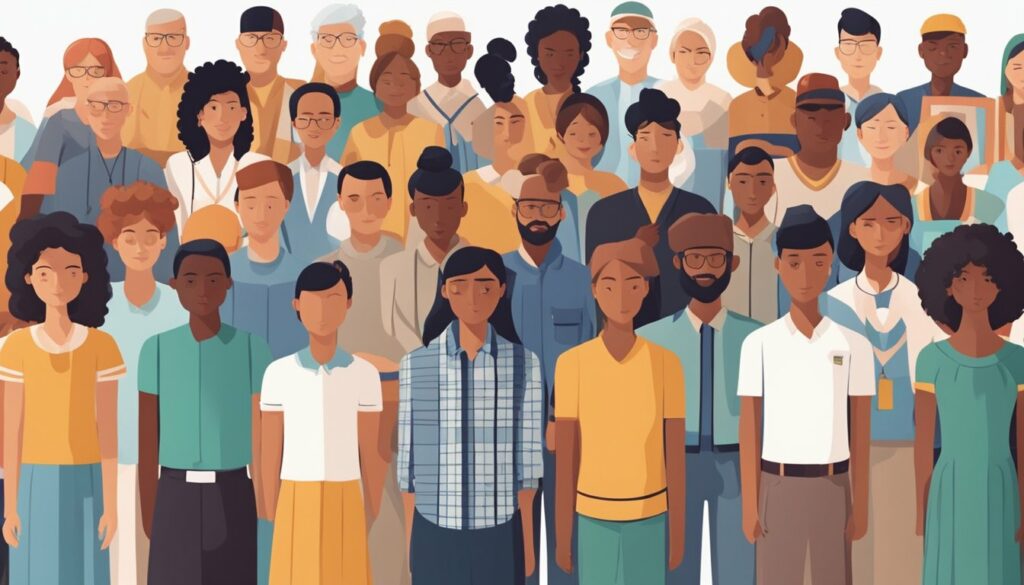
Respect and diversity go hand in hand. In today’s world, diversity is a fact of life, and it is essential to understand and value differences. When people appreciate and respect each other’s differences, they can work together and learn from each other.
Understanding and Valuing Differences
Understanding and valuing differences is crucial to mutual respect. People have different backgrounds, experiences, cultures, and beliefs, which shape their worldview. It is essential to recognize and respect these differences to build a harmonious society.
In addition, people should be aware of their biases and prejudices. Biases can be conscious or unconscious, and they can lead to discrimination. People should try to eliminate their biases and treat everyone with respect and dignity.
Inclusion and the Role of Empathy
Inclusion means that everyone is welcome and valued, regardless of their differences. Empathy plays a significant role in inclusion. Empathy is the ability to understand and share the feelings of others. When people show empathy, they can connect with others and build relationships based on mutual respect.
Inclusion also means that people should be able to express themselves without fear of discrimination or harassment. People should be encouraged to share their ideas and perspectives, even if they are different from others.
Diversity Training and Awareness
Diversity training and awareness can help people understand and appreciate differences. Diversity training can provide people with the knowledge and skills to work effectively with people from diverse backgrounds. It can also help people recognize and eliminate their biases.
Awareness is also essential. People should be aware of the different cultures, religions, and beliefs that exist in society. They should also be aware of the discrimination and challenges that some people face.
One external resource that provides more information on diversity and inclusion is the Diversity and Inclusion Resource Center by the Society for Human Resource Management (SHRM).
In conclusion, respect and diversity are essential for a harmonious society. People should understand and value differences, show empathy, and be aware of biases and discrimination. Diversity training and awareness can also help people appreciate and respect differences.
Implementing Respectful Practices
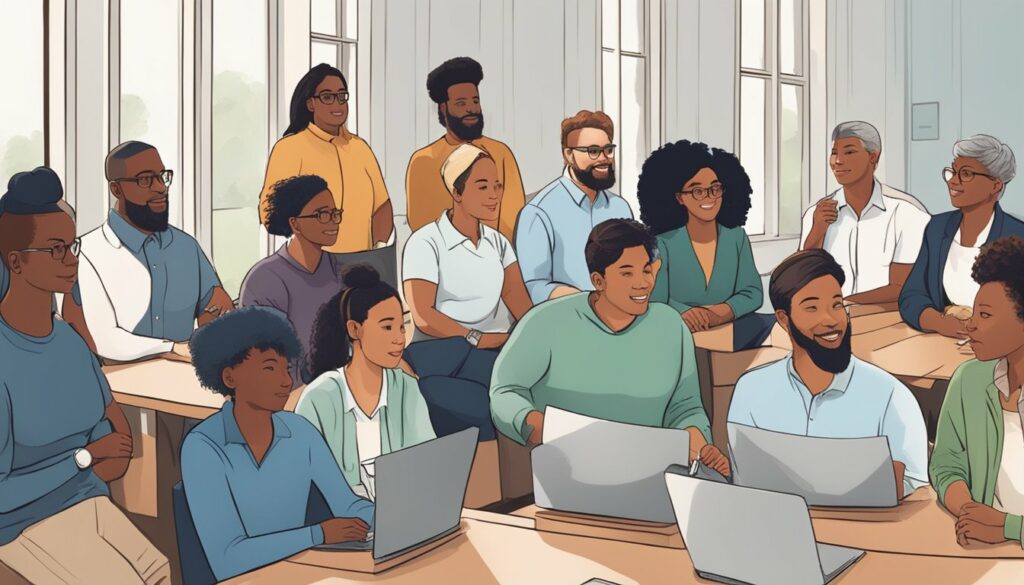
Mutual respect is a crucial aspect of any healthy relationship, be it personal or professional. To cultivate mutual respect, it is essential to implement respectful practices consistently. Here are some practical steps that can be taken to promote mutual respect in any setting:
Practical Steps to Cultivate Mutual Respect
-
Active Listening: Active listening is a crucial aspect of respectful communication. When someone speaks, it is essential to listen to them attentively without interrupting them or making assumptions. Active listening shows that you value the other person’s thoughts and opinions, which is a key component of mutual respect.
-
Avoid Blaming or Criticizing: It is essential to avoid blaming or criticizing others, especially in a professional setting. Instead, focus on providing constructive feedback that can help improve the situation. Criticism and blame can lead to resentment, which can undermine mutual respect.
-
Encourage Open Communication: Encouraging open communication can help foster mutual respect. It is essential to create a safe space where people can express their thoughts and feelings without fear of judgment or retribution.
Recognition and Appreciation in Practice
One of the best ways to cultivate mutual respect is to show appreciation and gratitude towards others. Here are some ways to recognize and appreciate others in practice:
-
Acknowledge Achievements: It is essential to acknowledge the achievements of others, no matter how small they may seem. Celebrating success can help boost morale and promote a positive work environment.
-
Express Gratitude: Expressing gratitude towards others can help build stronger relationships. Saying thank you or acknowledging someone’s efforts can go a long way in promoting mutual respect.
Ethical Strength and Fairness in Decision Making
Ethical strength and fairness are essential components of mutual respect. Here are some ways to promote ethical strength and fairness in decision making:
-
Promote Collaboration: Collaboration is a key aspect of ethical decision making. It is essential to involve all stakeholders in the decision-making process to ensure fairness and transparency.
-
Consider the Impact: It is important to consider the impact of any decision on all stakeholders involved. This includes considering the ethical implications of any decision and ensuring that it aligns with the organization’s values.
Implementing respectful practices is crucial for promoting mutual respect in any setting. By actively listening, avoiding blame and criticism, encouraging open communication, recognizing achievements, expressing gratitude, promoting collaboration, and considering the impact of decisions, individuals and organizations can cultivate a culture of mutual respect. For more information on promoting mutual respect, check out this resource from MindTools.
Impact of Mutual Respect
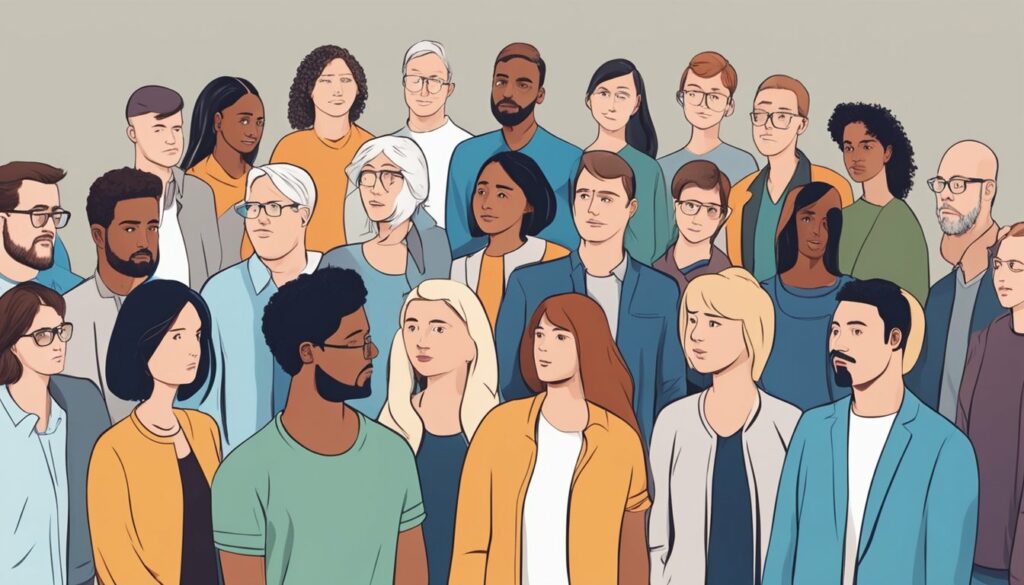
Mutual respect is a fundamental aspect of healthy relationships, whether it is in personal or professional settings. It not only helps build trust and understanding but also has a positive impact on various aspects of an individual’s life. In this section, we will explore the impact of mutual respect on mental health and well-being, fostering creativity and innovation, and enhancing team member engagement.
On Mental Health and Well-being
Mutual respect plays a crucial role in promoting mental health and well-being. When individuals feel respected, they are more likely to feel valued and appreciated, which can boost their self-esteem and confidence. This, in turn, can lead to better mental health outcomes such as reduced stress and anxiety levels.
According to a study by the American Psychological Association, workplace incivility can have a significant impact on an individual’s mental health and well-being. However, when individuals feel respected and valued in the workplace, they are more likely to experience positive emotions and better mental health outcomes.
Fostering Creativity and Innovation
Mutual respect can also foster creativity and innovation within a team or organization. When individuals feel respected, they are more likely to share their ideas and opinions without fear of judgment or criticism. This can lead to a more diverse range of ideas and perspectives, which can ultimately lead to more innovative solutions.
A study published in the Journal of Applied Psychology found that respectful communication within a team can lead to increased creativity and innovation. The study also found that when team members feel respected, they are more likely to engage in constructive conflict, which can lead to better problem-solving outcomes.
Enhancing Team Member Engagement
Mutual respect is also essential for enhancing team member engagement. When individuals feel respected, they are more likely to be engaged and committed to their work. This can lead to increased productivity, better job satisfaction, and reduced turnover rates.
A study by Harvard Business Review found that respectful communication within a team can lead to higher levels of engagement and commitment. The study also found that when team members feel respected, they are more likely to take ownership of their work and collaborate more effectively with their colleagues.
In conclusion, mutual respect is a crucial aspect of healthy relationships, whether it is in personal or professional settings. It has a positive impact on various aspects of an individual’s life, including mental health and well-being, fostering creativity and innovation, and enhancing team member engagement. By promoting mutual respect, individuals and organizations can create a more positive and productive work environment.
Here is a link to the study by the American Psychological Association mentioned in this section.
Challenges and Solutions

Dealing with Disrespect and Disrespectful Behavior
Mutual respect is the foundation of any healthy relationship, but it can be challenging to maintain when faced with disrespectful behavior. Whether it’s a minor disagreement or a major conflict, it’s important to address the issue head-on and find a solution that works for everyone involved. One effective way to deal with disrespectful behavior is to use “I” statements to express how the behavior makes you feel. For example, saying “I feel disrespected when you interrupt me” is more effective than saying “You’re being rude.” This approach helps to avoid placing blame and encourages the other person to take responsibility for their behavior.
Another strategy is to set clear boundaries and consequences for disrespectful behavior. This can help to prevent the behavior from escalating and send a message that it will not be tolerated. It’s important to follow through with consequences if the behavior continues, but also to remain calm and respectful throughout the process.
Conflict Management and Mediation
Conflicts are a natural part of any relationship, but they can be difficult to manage when emotions are running high. One effective way to manage conflicts is to use a problem-solving approach. This involves identifying the problem, exploring possible solutions, and working together to find a solution that works for everyone involved. It’s important to approach the situation with an open mind and a willingness to compromise.
If the conflict cannot be resolved through problem-solving, mediation may be necessary. A mediator is a neutral third party who can help facilitate communication and find a solution that works for everyone involved. Mediation can be particularly helpful in situations where there is a power imbalance or a history of unresolved conflicts.
Building Consensus Around a Common Goal
One of the most effective ways to foster mutual respect is to work together towards a common goal. This can help to build trust and create a sense of shared purpose. It’s important to involve everyone in the process and to ensure that everyone’s voice is heard. This can be achieved through regular meetings, brainstorming sessions, and open communication.
A counselor or therapist can also be helpful in building consensus around a common goal. They can provide guidance and support, and help to facilitate communication and problem-solving. It’s important to find a counselor or therapist who is experienced in working with the specific issues and challenges faced by the group.
External Resource: Conflict Resolution Skills – HelpGuide.org
Leading by Example

Mutual respect is a crucial aspect of any healthy workplace. It fosters a positive environment where employees feel valued, motivated, and empowered to do their best work. One of the most effective ways to promote mutual respect is by leading by example.
Managers and Team Leaders as Role Models
Managers and team leaders play a critical role in setting the tone for respectful behavior in the workplace. They should lead by example and model the behavior they expect from their team members. This includes treating everyone with respect, listening to their concerns, and valuing their contributions.
Encouraging Accountability and Responsibility
Accountability and responsibility are essential components of mutual respect. Managers and team leaders should encourage their team members to take ownership of their work and hold themselves accountable for their actions. This creates a culture of trust and respect, where everyone is committed to achieving common goals.
The Power of Apologizing and Compassion
Apologizing and showing compassion are powerful tools for promoting mutual respect. When mistakes happen, managers and team leaders should take responsibility and apologize for any harm caused. This demonstrates humility and a willingness to learn from mistakes, which can help build trust and respect. Additionally, showing compassion towards team members who are struggling can create a supportive environment where everyone feels valued and appreciated.
To learn more about leading by example and promoting mutual respect in the workplace, check out this article by Forbes.
Frequently Asked Questions

How can mutual respect be defined in various social contexts?
Mutual respect can be defined as the recognition and appreciation of each other’s differences, opinions, and beliefs. It is a fundamental aspect of healthy relationships that involves treating others the way you want to be treated, regardless of their background, race, gender, or religion. In social contexts, mutual respect can be demonstrated through active listening, open communication, and empathy.
What are some clear examples that illustrate mutual respect?
Examples of mutual respect include acknowledging and valuing other people’s opinions, being open to feedback, and treating others with kindness and dignity. Mutual respect can also be demonstrated by showing interest in other people’s cultures and traditions, and by avoiding derogatory language or behavior towards people who are different from you.
Why is mutual respect considered a fundamental aspect of healthy relationships?
Mutual respect is considered a fundamental aspect of healthy relationships because it creates a positive and supportive environment that fosters trust, understanding, and empathy. It helps to build strong connections between people and promotes effective communication, problem-solving, and conflict resolution. Additionally, mutual respect helps to reduce tension and promotes a sense of belonging and inclusivity.
Can you provide some quotes that encapsulate the concept of mutual respect?
“Respect for ourselves guides our morals, respect for others guides our manners.” – Laurence Sterne
“Treat people the way you want to be treated. Talk to people the way you want to be talked to. Respect is earned, not given.” – Hussein Nishah
“Respect is a two-way street, if you want to get it, you’ve got to give it.” – R.G. Risch
In what ways can mutual respect be fostered within a professional environment?
In a professional environment, mutual respect can be fostered through clear communication, active listening, and valuing the contributions of others. It is important to avoid discriminatory language or behavior and to treat colleagues with professionalism and dignity. Additionally, creating a culture of respect can be achieved by promoting diversity and inclusion, providing equal opportunities for growth and development, and acknowledging and rewarding good work.
What are some alternative terms that convey the same meaning as mutual respect?
Some alternative terms that convey the same meaning as mutual respect include dignity, courtesy, consideration, and tolerance. These terms all reflect the idea of treating others with kindness and fairness, regardless of differences in opinion or background.
For more information on mutual respect, please visit this resource.
Compare hundreds of Employee Training Software in our Software Marketplace













